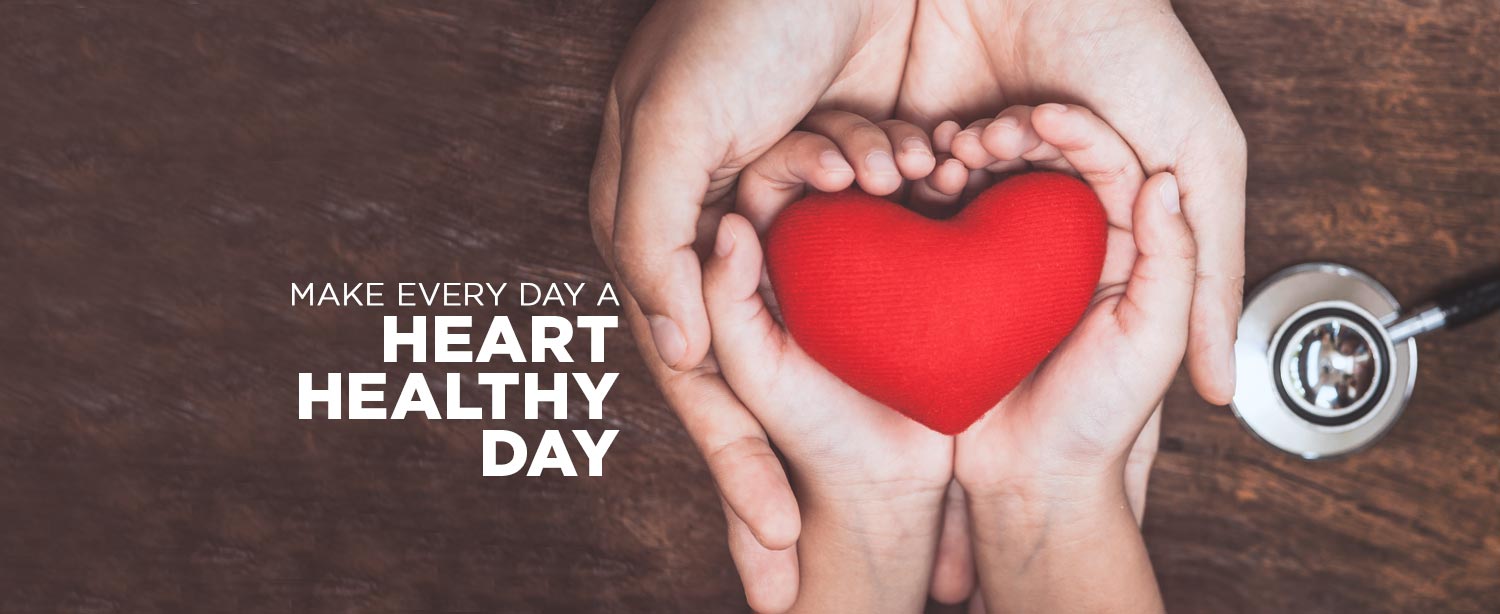India is currently witnessing nearly two million heart attacks a year, and a majority of the victims are young adults. This is an alarming figure! Heart disease is an umbrella term which addresses conditions and disorders that affect the structuring and functioning of the heart in some way or the other. Common known heart conditions include heart failure, heart attack, angina, heart valve disease, congenital heart disease or irregular heart rhythms. Of these different types of heart diseases, some are a result of lifestyle disorders while some are inherent in nature.
Here are a few common factors that contribute to cardiovascular diseases:
- Unhealthy eating.
- Overweight or obesity.
- Physical inactivity.
- Smoking.
- High cholesterol.
- High blood pressure.
- Diabetes.
- Depression.
- Family history of CVD.
Do you juggle between your professional, personal and social lives?
Do you have little time for your fitness goals?
Do not take your heart health lightly, infact make changes to live better. Make lifestyle and diet changes so that every day is a heart healthy day. Do not wait for any symptoms, instead start living heart healthy from today.
Your heart is the centre of your whole system; and here’s what you can do to keep it happy and healthy. Do all of these as part of your daily routine and you will have a healthy heart:
1. Take fitness seriously.
Exercise regularly to make your heart muscles strong, so they contract and release repeatedly at a fast pace. This also burns away any accumulated fat that could deposit in your arteries that leads to heart attacks.
Pick one activity from here, and do it six days a week for 30 minutes:
- Walk.
- Jog.
- Run.
- Cycle.
- Swim.
- Aerobics/zumba/kick boxing.
- Active sport (football, tennis, badminton; etc).
2. Choose healthy foods.
Eat heart-healthy foods like avocado, oatmeal, salmon, olive oil, nuts, berries, pure chocolate, legumes and spinach. Make one of these a part of every meal.
3. Eat healthy fats not trans fats.
We need fats in our diet, including saturated and polyunsaturated and unsaturated fats. One fat we don’t need is trans fat, which is known to increase your risk of developing heart disease or having a stroke over a lifetime. This is because trans fat clogs your arteries by raising your bad cholesterol levels (LDL) and lowering your good cholesterol levels (HDL). Stay away from fried foods and processed foods.
4. Don’t be sleep deprived.
Sleep is an essential part of keeping your heart healthy. If you don’t sleep enough, you may be at a higher risk for a cardiovascular disease no matter your age or other health habits. Adults who slept fewer than six hours per night are about twice as likely to have a stroke or heart attack compared to people who slept six to eight hours per night.
5. Stay away from second- hand smoke.
The risk of developing heart disease is about 25 to 30 per cent higher for people who are exposed to second-hand smoke at home or work. This is because the chemicals emitted from cigarette smoke promote the development of plaque build-up in the arteries.
6. Meditate.
This reduces your stress levels and makes the heart pump normally. Even 10 minutes of meditation a day can help make a difference to your heart health.
7. Do things that you enjoy.
Do one enjoyable activity every day. Solve a crossword, phone your best friend, read a book, watch a comedy show, anything that is happy and positive.
8. Practise good dental hygiene.
Dental health is a good indication of your overall health, including your heart, because those who have periodontal (gum) disease often have the same risk factors for heart. Brush twice a day and floss daily to maintain good dental hygiene.
Your heart and your diet.
Here are a few health tips on eating heart healthy:
- In order to take control of your heart health and your health in general, it’s important to evaluate your meal. Analyse the meals you eat, ingredients you use and cooking methods you use.
- The biggest part of turning a kitchen into a healthy place to cook and eat is to replace all junk foods and empty calorie foods with healthy options.
- Start cooking often. This helps you eat healthy and fresh home food and stay away from packaged foods and restaurant meals.
- An essential component of a heart-healthy diet is eating the right kinds of foods throughout the day. Snack strategically mid-morning and mid-afternoon to help keep you satisfied so that you don’t overeat at mealtime.
- Shop smart and plan ahead. Create weekly meals plans and buy groceries in advance. This will ensure you eat home food and get the maximum nutrients. Stocking the required ingredients also keeps you away from ready to eat packaged foods.
Is your heart healthy and strong? Do you have any queries on your cardiac health? Talk to our cardiologists at our Centre for Cardiac Sciences. Please find below link for more details:
https://www.kokilabenhospital.com/departments/centresofexcellence/centrefor_cardiacsciences.html


